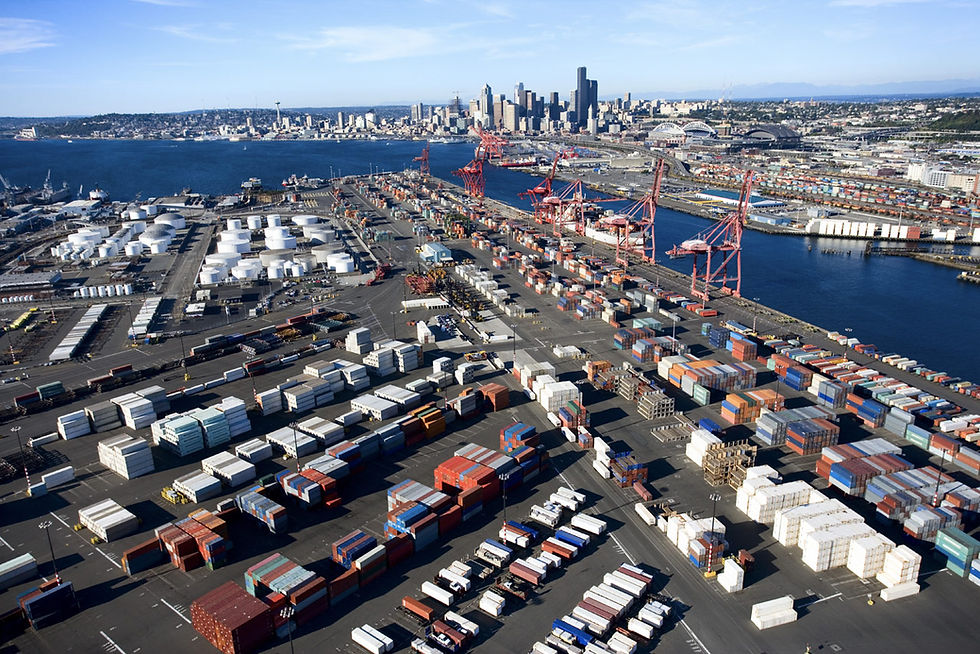
The Trump administration appears to be moving ahead with an Obama administration proposal aimed at reversing long-standing Jones Act exemptions and is not considering weakening its criteria for waivers from the maritime law, a US Customs and Border Protection spokeswoman said.
Those waivers “may only be granted if necessary in the interest of national defense,” as they traditionally have been, Katrina Skinner, the CBP spokeswoman, said in a statement to S&P Global Platts.
The issue centers on a change CBP proposed on January 18, just two days before the Obama administration ended, that would revoke decades of rulings allowing foreign-built vessels to transport certain equipment, such as repair pipe, between US ports and oil and gas operations in US waters.
The change, which is backed by the US maritime industry and a bipartisan swath of Congress, would represent a significant strengthening of the federal government’s enforcement of the Jones Act. The 100-year-old Jones Act requires vessels transporting goods between US ports to be US-flagged, US-built and majority US-owned.
The proposed change is opposed by drilling and marine contractors and the American Petroleum Institute, which last week released a study claiming the change could reduce oil and natural gas production in the US Gulf of Mexico by about 500,000 b/d over the next 13 years.
In her statement, CBP’s Skinner said the agency was accepting comments on the proposed change through April 18 and is expected to issue a decision on the potential change by mid-May.
While Skinner declined to comment further, sources said the Trump administration has indicated that it plans to go forward with the proposed change and will likely oppose any efforts seen as weakening the Jones Act.
Proponents of the change pointed to initial statements made by members of Trump’s cabinet in favor of the maritime law.
“The Jones Act is the law of the land and it will be obeyed unless the Congress changes its mind on that,” Transportation Secretary Elaine Chao said during her January 11 confirmation hearing.
“I intend to consult closely with Congress on any Jones Act-related issues and ensure that our position in trade negotiations does not undermine our ability to enforce the statute,” US Trade Representative Robert Lighthizer said during his March 17 confirmation hearing.
During a press call last week, Jack Gerard, API’s president and CEO, said his trade association was not pushing for a repeal of the Jones Act, but said the exceptions needed to stay in place since there were not enough US-flagged vessels needed to meet demand from US Gulf operations.
But Aaron Smith, president and CEO of the Offshore Marine Service Association, said this issue will be solved by ending the long-standing exemptions that have allowed companies to “skirt” the Jones Act.
“The only relevant economic impact is the adverse impact that CBP’s erroneous rulings have had for decades on US shipowners, mariners and shipyards,” Smith said. “CBP’s course correction ensures that more ships will be built in US shipyards employing US citizens.”
In a March 30 letter to Department of Homeland Security Secretary John Kelly, 30 House members, including seven Democrats, wrote that the exceptions, which they called “flawed letter rulings,” have hurt US maritime and shipyard industries.
“The CBP action restores the integrity and intent of the Jones Act in the offshore maritime industry, and will create American jobs and opportunities to the benefit of our national and economic security,” the House members wrote.
The Obama administration initially proposed ending Jones Act exemptions in 2009, but faced opposition, including within the administration, and apparently delayed the effort until January 18.
via HSN
.png)